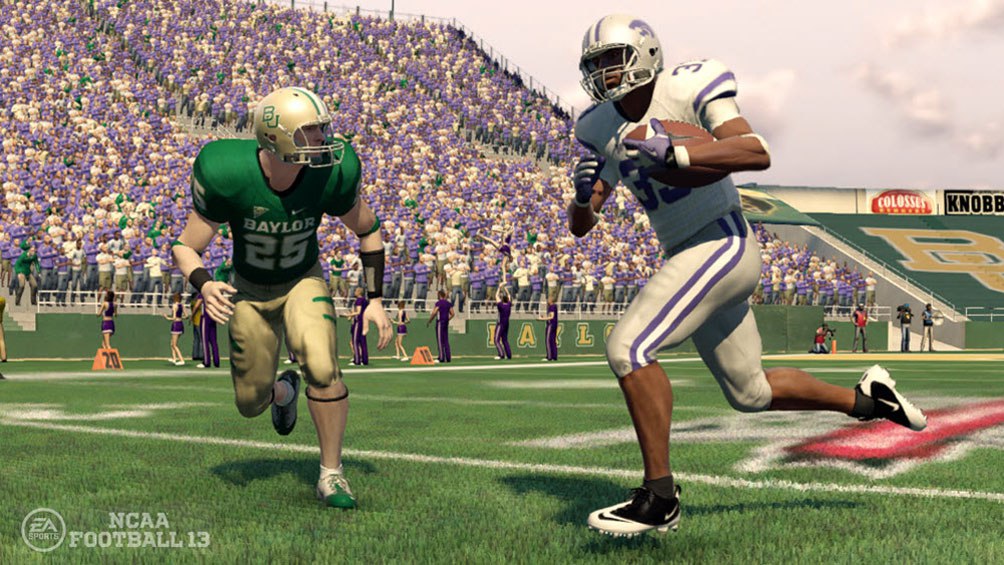EA To Pay College Athletes Up To $951 Each For Stealing Their Likenesses
 What are you worth? Or rather, how much would you want to be paid to have your likeness used in a wildly popular and profitable sports video game? According to video game giant (and two-time Worst Company In America winner) Electronic Arts, the price tag for a college athlete’s face is just shy of one thousand bucks.
What are you worth? Or rather, how much would you want to be paid to have your likeness used in a wildly popular and profitable sports video game? According to video game giant (and two-time Worst Company In America winner) Electronic Arts, the price tag for a college athlete’s face is just shy of one thousand bucks.
For the last several years, current and former college athletes have been suing EA for using the players’ likenesses without permission or payment in the company’s NCAA Football, Basketball, and March Madness video games.
On Friday, the law firm of Hagens Berman Sobol Shapiro announced the plaintiffs had reached a preliminary settlement with EA that would result in a few bucks being thrown in the general direction of the athletes who bring in billions for their schools, the NCAA, broadcasters, apparel makers, ticket brokers, and others, but who aren’t allowed to be paid because that would somehow violate the sanctity of collegiate sports.
The settlement, which still needs approval of the court, would pay affected athletes up to $951 for each year in which their likeness was used in an EA game. For players who were featured in multiple EA games in recent years, that could mean several thousands of dollars. For the superstars who moved onto the pros after only a year or two in college, it’s not as much money, but hopefully they are saving their NFL and NBA salaries.
And a player’s particular payout could actually be significantly lower than the $951 figure, depending on a number of factors, including the total number of claims made and when that player’s likeness was used. Individual claims could be as low as around $50.
According to the plaintiffs’ attorneys, in order to stake any claim to the estimated $40 million settlement pool, you would have to have been an NCAA football and/or basketball player listed on the roster of a school whose team was included in an NCAA-branded EA game published or distributed after May 4, 2003. Additionally, your assigned jersey number — or a photograph that looks like you — would have to have been part of the game.
“We’re incredibly pleased with the results of this settlement and the opportunity to right a huge wrong enacted by the NCAA and EA against these players and their rights of publicity,” said attorney Steve Berman in a statement. “We’ve fought against intense legal hurdles since filing this case in 2009 and to see this case come to fruition is a certain victory.”
Want more consumer news? Visit our parent organization, Consumer Reports, for the latest on scams, recalls, and other consumer issues.

